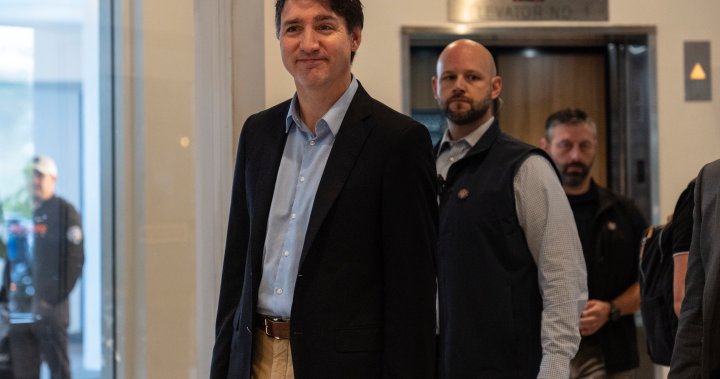Former Prime Minister Justin Trudeau received advice to underscore the robust economic integration between Canada and the United States during his unannounced November 29, 2024, dinner meeting with U.S. President Donald Trump at Mar-a-Lago, as revealed by documents obtained through an Access-to-Information request. The briefing notes recommended emphasizing America’s reliance on Canadian energy and minerals amidst tensions following Trump’s threat of imposing 25 percent tariffs on Canada. This disclosure emerges as Trudeau’s successor, Prime Minister Mark Carney, prepares for his inaugural in-person meeting with Trump at the White House on May 6, 2025.
Documents obtained via an Access-to-Information request detail the strategic counsel provided to former Prime Minister Justin Trudeau ahead of his surprise dinner with former U.S. President Donald Trump at Mar-a-Lago. The advice centered on highlighting the deep economic ties between Canada and the United States, an approach intended to counterbalance recent trade tensions exacerbated by Trump’s threat to enact 25 percent tariffs on Canadian goods.
Advisory Focus on Economic Interdependence
The briefing notes emphasized the critical role Canada plays in supplying essential energy resources and minerals to the United States, underscoring how intertwined the countries’ economies have become. It was suggested that Trudeau stress the mutual benefits of this integration to encourage a cooperative stance rather than confrontation during the meeting. Given the sensitive context of the trade threats, this strategy aimed to reinforce the message that tariffs could disrupt established supply chains and economic stability on both sides.
Context of U.S.-Canada Trade Relations
Relations between Canada and the United States had been strained in the months leading up to the November 29 meeting, primarily due to Trump’s tariff proposals. The 25 percent tariff threat targeted a range of Canadian exports, notably in the energy and manufacturing sectors, provoking concern in Canadian political and business circles about potential economic fallout. By focusing discussions on the economic integration narrative, Trudeau’s team intended to advocate for sustained collaboration despite political disagreements.
Implications for Upcoming Diplomatic Engagements
The timing of the disclosed briefing is significant as Prime Minister Mark Carney, Trudeau’s successor, was gearing up for his first face-to-face meeting with President Trump at the White House scheduled for May 6, 2025. The insights from Trudeau’s meeting and the accompanying advice may influence Carney’s approach in navigating the continued complexities of the bilateral relationship. Ensuring that economic interdependence remains a foundational talking point could serve as a stabilizing factor in ongoing diplomacy between the neighboring countries.
Broad Impact and Future Prospects
- The disclosure highlights the strategic importance attributed to economic ties in Canadian foreign policy.
- It illustrates the use of confidential advisory documents to inform high-level diplomatic engagements.
- Both governments appear to recognize that despite political tensions, maintaining strong trade relations is crucial.
- Future discussions will likely continue to balance political considerations with economic pragmatism.
The obtained documents thus shed light on the behind-the-scenes preparations that shape Canada-U.S. relations in times of diplomatic sensitivity, revealing a focus on shared economic interests as a platform for dialogue and negotiation.
In conclusion, the disclosure of advisory documents prepared for former Prime Minister Justin Trudeau’s November 2024 meeting with President Trump offers valuable insight into the strategic emphasis on economic integration between Canada and the United States amid trade tensions. By underscoring the mutual dependence in energy and mineral supplies, Canadian officials sought to frame diplomacy in terms of shared economic benefits rather than conflict. This approach not only aimed to mitigate the impact of tariff threats but also sets a precedent for ongoing and future diplomatic efforts, including those anticipated under Prime Minister Mark Carney. The focus on economic interdependence remains a key element in managing the complexities of Canada-U.S. relations, highlighting the importance of pragmatic cooperation despite political challenges.

